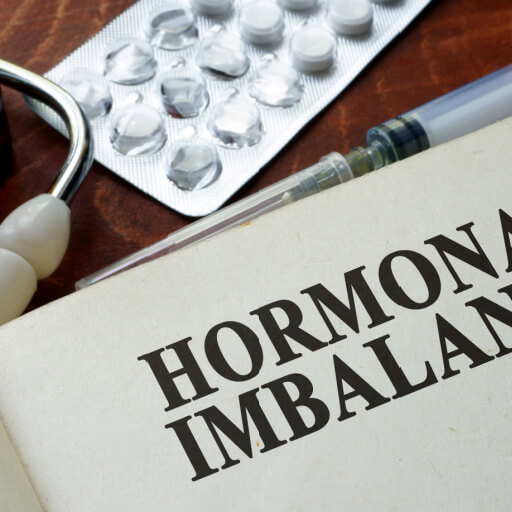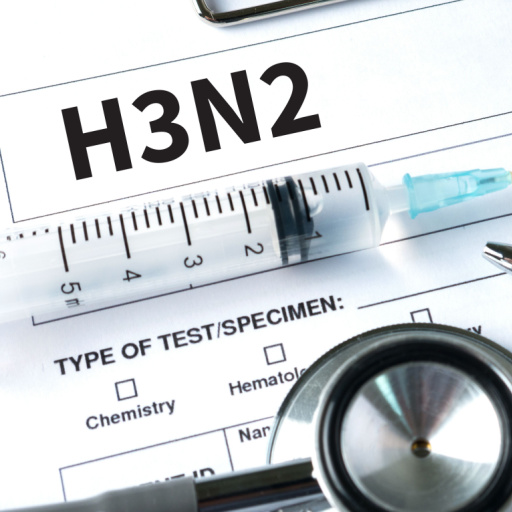Hormones are like the ingredients in the recipe for a perfect dish. The right balance of each hormone helps the body function properly, and too much or too little of any hormone can affect bodily functions. Hormones, produced in endocrine glands, may change in balance naturally with factors like aging. But when an imbalance occurs, your health might be in trouble.
How does hormonal imbalance impact mental well-being?

Hormone dysregulation or imbalance occurs when the endocrine system releases too much or insufficient hormone, which can lead to a wide range of hormonal disorders.
Hormones are essential messengers. For several hormones, even a minor excess or deficiency can result in significant physiological changes and specific illnesses that necessitate medical attention. While some hormonal abnormalities are chronic, others are temporary. Also, some hormone imbalances must be treated for you to maintain your physical health. In contrast, others may not directly influence your health but still harm your quality of life.
How can it be treated?
Preventing and controlling hormonal imbalances is best done with proactive lifestyle choices such as:
- Regular activities for weight management: This could include cardio, aerobics, HIIT exercises, weight-lifting and strength-training workouts to stay fit, which can ensure regulated menstrual cycles.
- Healthy dietary choices: Ensuring a balanced diet and avoiding fried, processed, sugary, salty, and unhealthy foods are the best ways to begin.
- Mental wellness: Practise mindfulness meditation, yoga asanas, and journal daily for your mental well-being.
- Avoid hot flashes: Identify things that trigger a sudden rise in body temperature, like warm temperatures, spicy foods, or hot beverages.
Hormonal imbalance in women
Men and women go through different periods of hormonal imbalances across different stages of life. Typically, they carry the same hormones (estrogens, progesterone, and testosterone), but their production locations, blood concentrations, and interactions with various organs and systems are different.
Women primarily generate estrogens and progesterone in a cyclical pattern from the ovaries, while the ovaries and adrenal glands produce little testosterone. Hormonal imbalances in women occur during puberty, menstruation, pregnancy, and menopause. These causes lead to regular hormone fluctuations in women. While women mostly face an imbalance in estrogen and progesterone, excess testosterone and androgens can also stir up hormonal problems.
Factors causing hormonal imbalance
Some major women’s health issues stem from hormonal imbalances. Thus, it is crucial to understand the factors causing these changes in the body.
- Lifestyle factors and stress: Poor sleep, bad eating habits, insufficient exercise, and pre-existing medical illnesses can all cause chronic stress, which can disrupt hormone balance and worsen mental health difficulties. Diets like red meat, processed meals, caffeine, soy, and dairy products are common foods for hormonal imbalances in females.
- Thyroid imbalances: Although they can happen to anybody, thyroid abnormalities are more common in women over 40. To check on the health of your thyroid, your doctor can request a blood test.
- Hormonal changes during pregnancy: Elevations of hormones like estrogen, progesterone, and testosterone can cause thyroid dysfunction.
- Postpartum thyroiditis: Postpartum Thyroiditis is an inflammation of the thyroid after childbirth. Because it generates a sad mood and exhaustion, this illness can be mistaken for postpartum depression.
- Menopause: It is a regular stage of hormonal changes in women, and it can take a toll on your physical and mental well-being. This, again, has an impact on the thyroid, causing several hormonal imbalances in women.
Common symptoms of hormonal imbalance that can affect mental health

Here are some symptoms of hormonal imbalance that you can experience:
- Anxiety/Depression: It is considered a symptom of low progesterone levels that impact the body’s ability to remain calm and ensure peaceful sleep.
- Mood Swings and fatigue: Too much estrogen or estrogen dominance can disrupt essential brain processes, causing one to become irritable and anxious.
- Irregular menstruation: Since many hormones are involved in the menstrual cycle, any imbalance can cause irregular periods. Specific hormone-related conditions include polycystic ovary syndrome (PCOS), which can lead to can lead to acne, excess hair growth, irregular periods, infertility, and amenorrhea, which refers to missing one or more periods. PCOS is one of the most common hormonal disorders among women of reproductive age. Studies done in South India and Maharashtra show that the prevalence of PCOS was reported as 9.13% and 22.5%, respectively.
- Bloating: Feeling bloated is a common symptom one faces during hormonal imbalances. Estrogen levels rise during the menstrual cycle, causing the body to retain water. Progesterone levels increase during the second half of the menstrual cycle, which can slow down digestion and cause gas to build up in the intestines, leading to bloating and discomfort. PCOS can also cause bloating.
- Hair loss: Women who have an excess of testosterone and androgens can also face hair loss. Estrogen levels decrease during menopause, leading to hair thinning and loss. Excess androgen levels can cause hirsutism, which is excess chest and facial hair in women.
- Restlessness and psychosis: An overactive thyroid causing hyperthyroidism can make the body constantly feel jittery and edgy.
- Acne: Hormonal fluctuations, especially during puberty, can cause clogged pores, leading to acne. Hormonal changes increase the amount of oil your skin produces. Therefore, acne becomes all the more common during pregnancy and menopause.
- Brain fog and memory loss: Another symptom linked to estrogen dominance, it is said to be caused by an intense hormone spike, which prevents optimized neurotransmitter production.
Exploring treatments
Treatment of hormonal imbalance in women highly depends on the type of hormone and should be done only based on a doctor’s consultation. Common hormonal imbalance treatments are different for men and women:
Here are some standard treatment plans for women:
- Hormone Replacement Therapy (HRT): HRT is used to provide temporary relief from intense menopausal symptoms, such as hot flashes and night sweats.
- Assisted reproductive techniques (ART): ART, such as in vitro fertilization (IVF), supports women with PCOS in their journey toward pregnancy.
Here are some hormonal treatment options for men:
- Testosterone replacement therapy: This is effective for conditions like hypogonadism, which leads to reduced testosterone levels, using gels and patches to relieve symptoms. It’s also beneficial for those experiencing delayed puberty.
Holistic healing
Here are three herbs that you can consume to treat hormonal imbalance naturally:
- Nigella seeds: Also known as fennel flower, nigella sativa produces tiny black seeds containing medicinal compounds such as thymoquinone — a phytonutrient or plant compound. It can also help relieve symptoms of PCOS, a disorder associated with hormonal imbalance and helps regulate insulin, luteinizing and thyroid hormones.
- Chasteberry: This herbal supplement is easily available in the market as a remedy for symptoms of menopause and women’s reproductive health. It also contains diterpenoid, which regulates hormones such as prolactin and dopamine.
- Ashwagandha: Ashwagandha, also known as Indian Ginseng, can help your body overcome stress by stimulating the brain’s hypothalamic-pituitary-adrenal (HPA) axis. This axis produces hormones such as cortisol.
While the study of the relationship between hormones and women’s mental health is laden with uncertainty, more research is still needed to comprehend it completely. However, this shouldn’t stop women from being active, being informed about hormonal changes in their bodies, and making proactive choices for their health.
Key Takeaways
- Stress, thyroid imbalances and menopause can cause hormonal imbalance.
- Symptoms include bloating, acne, and irregular periods.
- It can be treated by being physically active, eating a nutritious diet, and taking care of your mental health.
Stay tuned to the Activ Living Community. Keep updated with the latest health tips and trends through expert videos, podcasts, articles, and much more in nutrition, fitness, mindfulness, and lifestyle conditions like Asthma, Blood Pressure, Cholesterol, and Diabetes. Activ Living ke saath sahi sehat ki shuruaat ABHIkaro.
You may also be interested in the following blogs:
- Cancer Awareness Day: A Comprehensive Guide To 7 Preventative Strategies
- A Comprehensive Guide To The 4 Types Of Cancer Screening Tests
Popular Searches
How to lower blood pressure | Fruits good for liver | Unhealthy foods | Ragi Benefits | Basal Metabolic Rate | Acupressure points for High Blood Pressure | Ayurvedic medicine for blood pressure | How to control cholesterol at home | Homeopathy for Asthma | Biological Age | Home remedies for TB | Natural beta blockers | Negative effects of internet | Types of walking | Blood pressure calculator | Blood sugar calculator | BMI Calculator





 1800-270-7000
1800-270-7000






Appreciate you sharing, great blog article.Much thanks again. Much obliged.